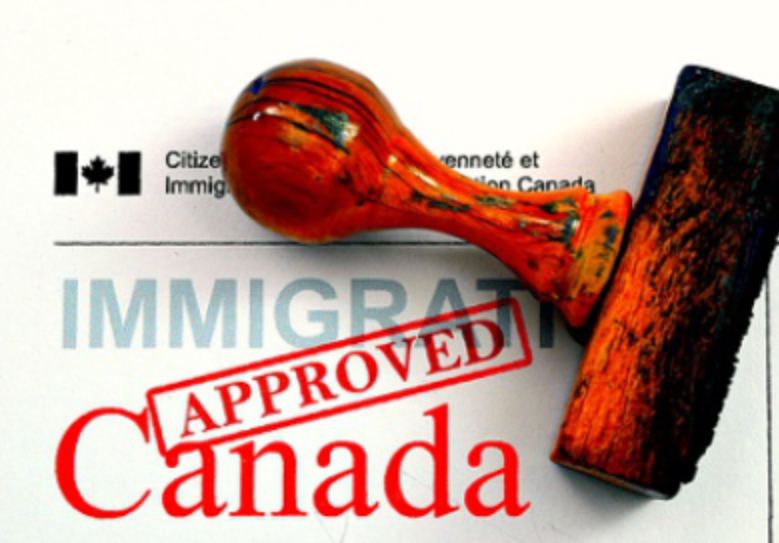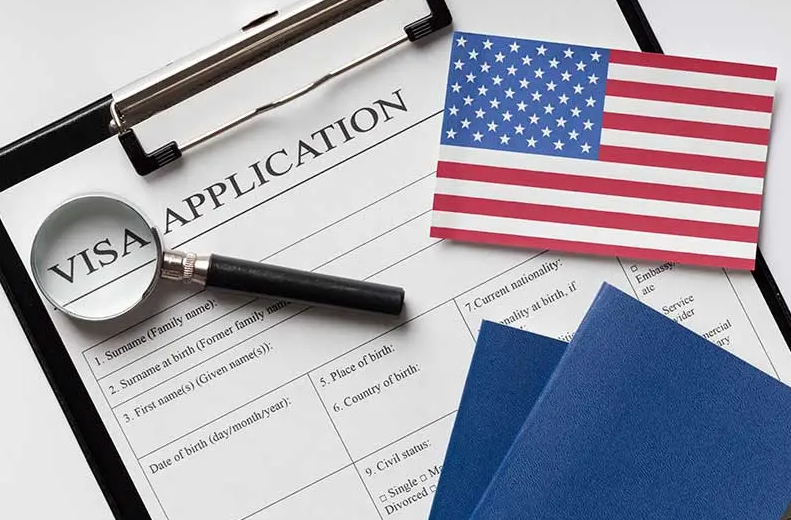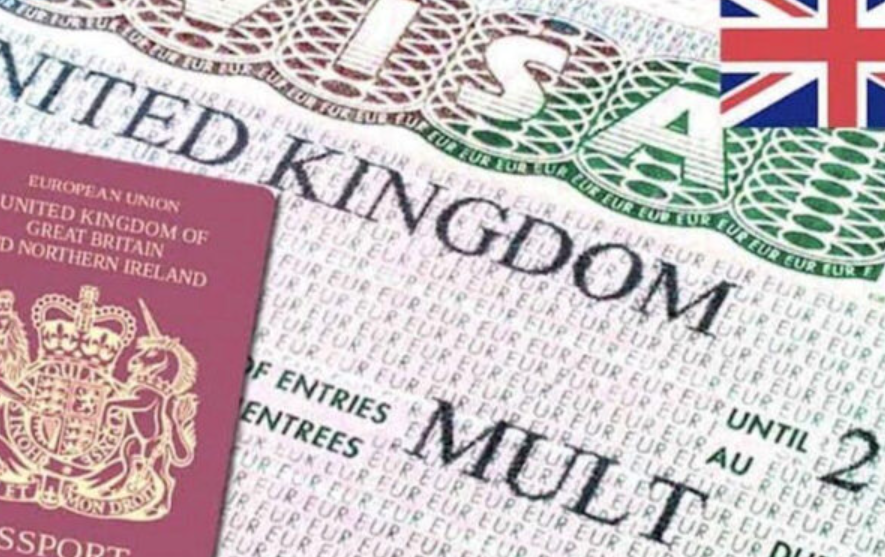Canada offers a world-class education, vibrant multicultural cities, and promising career opportunities. But before you pack your bags, you’ll need to navigate the crucial process of obtaining a study permit and student visa for immigrants in Canada.
This isn’t merely about filling out forms and submitting documents; it’s about navigating a system designed to ensure that those who contribute to Canada’s intellectual and economic fabric do so with integrity and purpose. The journey to obtaining your study permit and student visa for immigrants in Canada is a testament to your dedication, a tangible representation of your commitment to academic pursuit and a potential gateway to a life enriched by Canadian values.
Imagine yourself strolling through the historic campuses of Toronto, engaging in cutting-edge research in Vancouver, or immersing yourself in the French-infused culture of Montreal. These are not just fleeting images; they are attainable realities. However, the path to these experiences requires a deep understanding of the regulations, a keen eye for detail, and a strategic approach to your application.
This guide isn’t just a simple checklist; it’s a comprehensive roadmap, designed to illuminate the complexities of the Canadian immigration system and empower you to confidently navigate the process.
Why Pursue Education in Canada?
Beyond the allure of stunning landscapes and welcoming communities, pursuing education in Canada offers a unique blend of academic rigor, cultural immersion, and future-forward opportunities. It’s not just about earning a degree; it’s about investing in a transformative experience that can shape your future in profound ways. Let’s explore the multifaceted reasons why Canada stands out as a premier destination for international students:
-
A Pedigree of Academic Excellence:
Canada’s education system consistently ranks among the best in the world. Its universities and colleges are renowned for their commitment to research, innovation, and academic rigor. From cutting-edge STEM programs to globally recognized humanities departments, Canadian institutions provide a fertile ground for intellectual growth.
The emphasis on critical thinking, problem-solving, and practical application equips students with the skills necessary to excel in a rapidly evolving global landscape. This commitment to quality is a major draw for those seeking a foundation that propels them to future success, making the pursuit of a study permit and student visa for immigrants in Canada a worthwhile investment.
-
A Mosaic of Cultures, A World of Perspectives:
Canada’s reputation as a multicultural mosaic is not just a slogan; it’s a lived reality. Studying in Canada means immersing yourself in a vibrant tapestry of cultures, languages, and perspectives. This exposure broadens your horizons, fosters intercultural understanding, and cultivates a global mindset – invaluable assets in today’s interconnected world.
You’ll learn alongside students from all corners of the globe, gaining insights that go beyond textbooks and lectures. This diverse environment is a crucial aspect of why people seek a study permit and student visa for immigrants in Canada.
-
A Safe and Supportive Learning Environment:
Canada’s commitment to safety and security provides a nurturing environment for international students. The country’s low crime rates and stable political climate offer peace of mind, allowing students to focus on their studies without undue worry. Furthermore, Canadian institutions prioritize student well-being, offering a range of support services, including academic advising, counseling, and social activities. This support system helps international students navigate the challenges of adapting to a new culture and academic environment.
-
Bridging Education and Career: Post-Graduation Opportunities:
Canada’s Post-Graduation Work Permit (PGWP) program is a significant draw for international students. It allows graduates to gain valuable Canadian work experience after completing their studies. This experience not only enhances their career prospects but also provides a pathway to permanent residency for those seeking to build a long-term future in Canada. This strategic bridge between education and career is a compelling reason for securing a study permit and student visa for immigrants in Canada.
-
Innovation and Research: A Hub of Discovery:
Canada is a hub of innovation and research, with significant investments in cutting-edge technologies and scientific advancements. Students have the opportunity to participate in groundbreaking research projects, work with leading experts, and contribute to the development of new technologies. This exposure to innovation fosters a spirit of inquiry and prepares students to become leaders in their respective fields.
-
Quality of Life: A Balanced Approach:
Beyond academics, Canada offers a high quality of life. Its clean air, beautiful natural landscapes, and vibrant cities provide a balanced and enriching experience. Students can enjoy a range of recreational activities, from hiking and skiing to attending cultural events and festivals. This balanced approach to life makes Canada an attractive destination for those seeking a holistic educational experience.
-
A Pathway to a Future:
For many, studying in Canada is more than just a temporary academic pursuit; it’s a stepping stone to a brighter future. Canada’s welcoming immigration policies and diverse economic opportunities make it an attractive destination for those seeking to build a long-term life in the country. The skills and knowledge gained through a Canadian education, coupled with the experience of living and working in Canada, provide a strong foundation for a successful and fulfilling future. This future prospect motivates many to pursue a study permit and student visa for immigrants in Canada.
Pursuing education in Canada is an investment in yourself. It’s an opportunity to expand your horizons, gain valuable skills, and build a foundation for a successful and fulfilling future. The allure of academic excellence, cultural diversity, and future-forward opportunities makes Canada a truly exceptional destination for international students.
Understanding the Difference: Study Permit vs. Student Visa
The terms “study permit” and “student visa” are often used interchangeably, leading to confusion among aspiring international students. However, they serve distinct purposes within the Canadian immigration framework. Understanding their differences is crucial for a smooth and successful application process. Let’s delve deeper into the nuances of each:
-
Study Permit: Your Academic Authorization
- Purpose: The study permit is a document issued by Immigration, Refugees and Citizenship Canada (IRCC) that authorizes you to study at a Designated Learning Institution (DLI) in Canada. It’s essentially your official permission to pursue your academic endeavors within the country.
- Nature: It’s a permission document, not a travel document. It outlines the conditions of your stay, including the DLI you’re authorized to attend, the program of study, and the duration of your stay.
- Issuance: You typically apply for your study permit before arriving in Canada. The physical permit is usually issued at the port of entry upon your arrival, after you’ve met all the necessary requirements.
- Requirements: To obtain a study permit, you must demonstrate that you:
- Have been accepted by a DLI.
- Have sufficient financial resources to cover your tuition, living expenses, and return transportation.
- Are a genuine temporary resident who will leave Canada upon completion of your studies.
- Meet other eligibility criteria, such as medical and security requirements.
- Validity: The study permit’s validity period generally matches the length of your study program, plus an additional period to allow for program completion.
-
Student Visa (Temporary Resident Visa – TRV): Your Entry Ticket
- Purpose: The student visa, also known as a Temporary Resident Visa (TRV), is a travel document that allows you to enter Canada. It’s essentially your “entry ticket” to the country.
- Nature: It’s a sticker placed in your passport that indicates you’re authorized to travel to Canada.
- Issuance: The TRV is typically issued by a Canadian visa office outside of Canada. You may apply for it concurrently with your study permit application.
- Requirements: The requirement to obtain a TRV depends on your nationality. Some nationalities are visa-exempt, meaning they don’t need a TRV to enter Canada for short stays. IRCC has a list on their website that details who needs a TRV.
- Relationship to Study Permit: While the study permit authorizes your study, the TRV authorizes your entry into Canada. You need both (if applicable) to legally study in Canada.
- Validity: The TRV’s validity period may vary, but it must be valid for the duration of your intended stay.
Key Differences Summarized:
- Authorization: Study permit authorizes study; student visa authorizes entry.
- Document Type: Study permit is a permission document; student visa is a travel document.
- Issuance Location: Study permit is issued at the port of entry (after approval); student visa is issued by a Canadian visa office abroad.
- Nationality Dependence: Study permit requirements apply to all international students; student visa requirements depend on nationality.
Think of the study permit as your “license to learn” and the student visa as your “key to the door.” You need both to unlock the opportunity to study in Canada, but they serve distinct functions.
Understanding this distinction is not just a matter of semantics; it’s crucial for ensuring a smooth and compliant immigration process. By recognizing the separate roles of these documents, you can navigate the application process with greater clarity and confidence, paving the way for your successful academic journey in Canada.
How to Secure the Study Permit and Student Visa for Immigrants in Canada
The journey to obtaining your study permit and student visa for immigrants in Canada is a multi-faceted process that demands meticulous attention to detail and a strategic approach. Let’s break down each step, providing comprehensive insights to help you navigate this critical phase:
-
Securing Your Letter of Acceptance from a Designated Learning Institution (DLI):
- Research and Selection: Begin by meticulously researching and selecting a DLI that aligns with your academic aspirations. Consider factors like program offerings, faculty expertise, location, and tuition fees.
- Application Process: Each DLI has its own unique application process. Adhere strictly to their deadlines and requirements. Prepare a compelling application package that highlights your academic achievements and suitability for the program.
- Acceptance Letter: Upon successful admission, you will receive an official Letter of Acceptance. This document is the cornerstone of your study permit application. Ensure it contains all necessary details, including program duration, start date, and tuition fees.
- DLI Verification: Double-check that the institution is listed on the IRCC’s official list of designated learning institutions. This verification ensures your study permit application’s validity.
-
Assembling Your Comprehensive Documentation:
- Document Checklist: Refer to the IRCC’s official website for the most up-to-date document checklist. Requirements can vary based on your nationality and circumstances.
- Financial Proof: Provide concrete evidence of sufficient funds to cover tuition, living expenses, and return travel. This may include bank statements, scholarship letters, or sponsorship documentation.
- Passport Validity: Ensure your passport is valid for the duration of your intended stay in Canada.
- Letter of Explanation: Craft a well-written letter that clearly articulates your study plans, intentions to return to your home country, and reasons for choosing Canada.
- CAQ (if applicable): If you plan to study in Quebec, you must obtain a Certificat d’acceptation du Québec (CAQ) before applying for your study permit.
- Medical Exam/Police Certificate: Based on your country of origin, you may need to provide medical exam results and/or police clearance certificates.
-
Online Application Submission:
- IRCC Online Portal: Create an account on the IRCC’s online portal. This is the primary platform for submitting your study permit application.
- Application Form Completion: Accurately and thoroughly complete the online application form. Double-check all information before submission.
- Document Upload: Upload all required documents in the specified format. Ensure the documents are clear and legible.
- Application Fee Payment: Pay the non-refundable application fee online.
-
Concurrent Student Visa (TRV) Application (if applicable):
- Nationality Check: Determine if your nationality requires a TRV. The IRCC website provides a list of visa-exempt countries.
- TRV Application: If required, apply for your TRV simultaneously with your study permit application.
- TRV Requirements: Gather the necessary documents for your TRV application, which may include passport photos and proof of ties to your home country.
-
Biometric Enrollment:
- Biometric Instruction Letter: If required, the IRCC will send you a Biometric Instruction Letter (BIL).
- Biometric Appointment: Schedule an appointment at a designated biometric collection site.
- Biometric Submission: Provide your fingerprints and photograph.
- Biometric Validity: Biometrics are typically valid for 10 years.
-
Processing Time and Status Monitoring:
- Processing Times: Be aware that processing times can vary significantly. Check the IRCC website for current processing times.
- Application Status: Regularly monitor your application status through your online IRCC account.
- Communication with IRCC: Respond promptly to any requests for additional information from the IRCC.
-
Port of Entry Procedure:
- Study Permit Issuance: Upon arrival at the Canadian port of entry, present your study permit approval letter, passport, and other relevant documents to the border services officer.
- Officer Interview: Be prepared to answer questions about your study plans and intentions.
- Study Permit Confirmation: If approved, the border services officer will issue your study permit.
-
Post-Arrival Integration:
- SIN (if applicable): If you plan to work on campus, apply for a Social Insurance Number (SIN).
- Health Insurance: Secure adequate health insurance coverage.
- Accommodation: Find suitable accommodation.
- Bank Account: Open a Canadian bank account.
- Orientation Programs: Attend orientation programs offered by your DLI.
- Community Integration: Engage with the local community and explore your new surroundings.
By meticulously following these steps and providing a comprehensive and accurate application, you can significantly increase your chances of obtaining your study permit and student visa for immigrants in Canada and embarking on your Canadian academic adventure.
Beyond the Study Permit: Exploring Pathways to Permanent Residency
The study permit and student visa for immigrants in Canada often serve as the initial stepping stone for those seeking a long-term future in the country. While the academic journey is rewarding, many international students aspire to contribute their skills and build their lives in Canada permanently. Fortunately, Canada offers several pathways to permanent residency, allowing graduates to transition from temporary student status to permanent resident status. Let’s delve into these pathways:
-
The Canadian Experience Class (CEC):
- Eligibility: The CEC is designed for individuals with Canadian work experience. Graduates who have obtained a Post-Graduation Work Permit (PGWP) and gained skilled work experience in Canada are eligible to apply.
- Express Entry System: The CEC is managed through the Express Entry system, which ranks candidates based on factors like age, education, work experience, and language proficiency.
- Skilled Work Experience: Applicants must have at least one year of full-time (or equivalent part-time) skilled work experience in Canada within the three years preceding their application.
- Language Proficiency: Applicants must demonstrate proficiency in English or French through standardized language tests.
- Advantages: This pathway allows graduates to capitalize on their Canadian work experience, which is highly valued by the Canadian government.
-
Provincial Nominee Programs (PNPs):
- Provincial Autonomy: Each Canadian province and territory have its own PNP, which allows them to nominate individuals who meet their specific labor market and economic needs.
- Graduate Streams: Many PNPs offer streams specifically designed for international graduates who have studied and worked in the province.
- Regional Requirements: PNP requirements vary significantly between provinces. Some provinces may prioritize graduates with specific skills or those who have studied in particular fields.
- Provincial Nomination: A provincial nomination significantly increases an applicant’s chances of receiving an Invitation to Apply (ITA) for permanent residency through the Express Entry system.
- Regional Focus: PNPs provide a pathway for graduates who wish to settle in a specific province or territory.
-
Express Entry: A Federal Pathway for Skilled Workers
- Federal Program: Express Entry is a federal system that manages applications for permanent residency under three economic programs: the Federal Skilled Worker Program (FSWP), the Federal Skilled Trades Program (FSTP), and the Canadian Experience Class (CEC).
- Comprehensive Ranking System (CRS): Candidates are ranked based on the CRS, which assigns points for factors like age, education, work experience, and language proficiency.
- Invitation to Apply (ITA): The highest-ranking candidates receive ITAs to apply for permanent residency.
- Broad Eligibility: Express Entry is open to skilled workers from around the world, including international graduates who meet the eligibility criteria.
- Fast Processing: Express Entry offers relatively fast processing times for permanent residency applications.
-
Atlantic Immigration Program (AIP):
- Regional Focus: The AIP is designed to attract and retain skilled immigrants in the Atlantic provinces of Nova Scotia, New Brunswick, Prince Edward Island, and Newfoundland and Labrador.
- Employer-Driven: The AIP is employer-driven, meaning that applicants must have a job offer from a designated employer in the Atlantic region.
- Graduate Stream: The AIP includes a stream for international graduates who have studied in the Atlantic provinces.
- Community Support: The AIP provides settlement support to help immigrants integrate into their new communities.
- Regional Growth: This program aims to boost the economic growth of the Atlantic provinces.
-
Rural and Northern Immigration Pilot (RNIP):
- Community-Driven: The RNIP is a community-driven pilot program that aims to attract and retain skilled immigrants in participating rural and northern communities.
- Job Offer Requirement: Applicants must have a job offer from an employer in a participating community.
- Community Recommendations: Participating communities play a role in recommending candidates for permanent residency.
- Regional Development: The RNIP aims to address labor shortages and promote economic development in smaller communities.
- Unique Opportunities: This pilot offers unique opportunities for those who wish to live and work in rural and northern Canada.
By exploring these pathways, international graduates can leverage their Canadian education and work experience to build a successful and fulfilling life in Canada. The study permit and student visa for immigrants in Canada can be the first step towards a long-term future in a country that values diversity, innovation, and opportunity.
Conclusion
Obtaining a study permit and student visa for immigrants in Canada can seem daunting, but with careful planning and preparation, you can achieve your academic goals. By following this comprehensive guide, you’ll be well on your way to experiencing the enriching and transformative journey of studying in Canada. Remember to stay informed, be meticulous, and seek assistance when needed.






